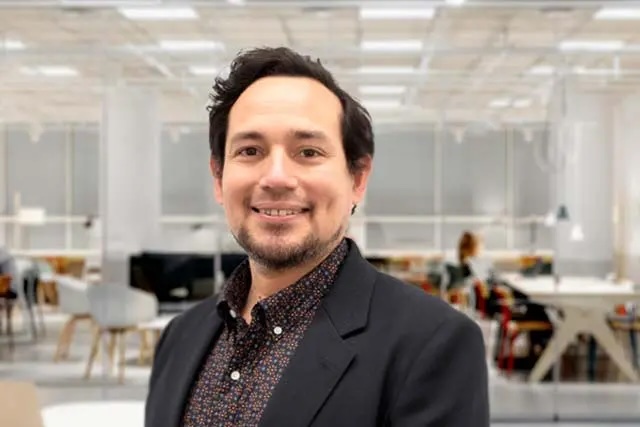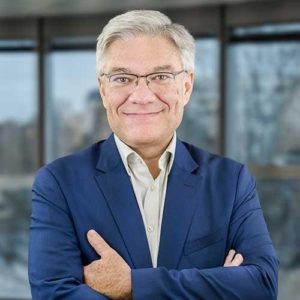
Rodrigo Cetina-Presuel, associate dean for education & academic affairs at UPF Barcelona School of Management: “The change in H1-B visas will generate a significant disruption in the global market of high-skilled workers. Apart from being a barrier for migrants, it will be an entry barrier for American companies”
The United States’ proposed overhaul of the H-1B visa system has sent ripples through the global education and talent ecosystem, especially among international business schools. As Poets&Quants has reported, the Trump administration is moving ahead with changes that could significantly increase fees — up to $100,000 for certain employers — and prioritize higher-wage applicants in a new wage-band allocation system, raising concerns among schools that have long relied on the U.S. work-back promise to attract global talent. A recent P&Q analysis showed Indian students vastly outnumber their Chinese peers in most top MBA cohorts in the U.S., making them especially vulnerable to these shifting policies.
Business school leaders across Europe and Asia are already seeing changes in response to Trump’s moves. Some are reporting an uptick in American and South Asian interest in study destinations outside the U.S., while others point to broader student and employer recalibration in favor of environments offering more predictable post-study work pathways. P&Q has reported that schools like INSEAD, IE, and HEC have noted that visa flexibility is becoming a top factor for prospective students weighing where to apply — and for companies deciding where to recruit.
Six leaders from international business schools and consulting firms weighed in this week with observations on how the H-1B uncertainty is already reshaping the global flow of talent. From Paris to Bangkok, the message is clear: if the U.S. steps back from its role as a welcoming hub for skilled professionals, others are eager to step forward. Their full unedited comments follow.
Frédéric Fréry, Co-Director of the ESCP Tech Institute, ESCP Business School


ESCP’s Frédéric Fréry
“Washington’s move to raise H-1B visa costs risks undermining America’s appeal for global tech talent, particularly in AI. Europe is already moving to seize the opportunity: countries like France and Germany are offering fast-track visas and major AI investments, while companies highlight stability and quality of life. This shift could strengthen Europe’s role as a hub for innovation, if governments and business leaders act quickly to attract and integrate this talent. As is often the case, protectionism is a double-edged sword: although intended to limit competition, it can ultimately do more harm than good to its proponents by inadvertently strengthening it.
“At ESCP Business School, we’re seeing this evolution firsthand, with a growing influx of international students, including an increasing number from the United States, choosing Europe not only for world-class education but also as a launchpad for their careers. European business schools must act as connectors—linking diverse, global talent with the continent’s dynamic business landscape. We must ensure that varied perspectives are woven into the fabric of European innovation ecosystems. If we rise to the occasion, Europe can turn today’s global uncertainty into lasting strategic advantage. At ESCP, we’re ready—and committed—to driving that change.”
Andrew Crisp, CarringtonCrisp, a specialist consulting firm for business and higher education
“Tech, finance and professional services are all largely borderless, the work can be done from anywhere and those wanting to work in these sectors can learn anywhere. If it becomes more difficult to study in one country, international students have lots of options to learn and study globally. More than 50 countries now offer digital nomad visas, offering opportunities for gig workers to work for a company in one country, while enjoying the culture and environment of somewhere else.
“CarringtonCrisp’s recent Business of Branding study found just such a trend when it comes to learning with Germany moving ahead of the US as a popular study destination, combining good business schools, lower study costs and greater expectations of being able to stay and work there after graduation.”
Christine Sinapi, Director of Programmes and Development, ESSCA School of Management


ESSCA’s Christine Sinapi
“The recent changes in U.S. visa policy illustrate how quickly the global landscape can shift, and we see it as essential to prepare our students for such realities. The decision taken by the US government will force global talent to look at other countries and regions. Our multi-campus system—with locations in France, Hungary, Luxembourg and Spain—together with our programmes, reflects ESSCA’s focus of instilling an open, global mindset enabling our students to pursue international careers. An example is ESSCA’s Bachelor in International Management, which allows students to study in three or more countries in three years, gaining direct exposure to different cultural and professional environments.
“In Europe, robust post-study work options, entrepreneurship opportunities, and a transparent legal framework make the continent a highly competitive destination for global talent. At ESSCA, we encourage, welcome, nurture and champion diversity, seeing it as both a strength in our classrooms and a catalyst for knowledge, creativity and leadership. Our commitment is to shape graduates who are not only resilient to change but equipped to lead and innovate in an interconnected world, wherever that may be.”
Dibyendu Bose, Deputy Director, Sasin School of Management
“Uncertainties about US visas, especially the recent changes to the H-1B visa seem to be a central concern during our conversations with MBA prospects in India and Southeast Asia. Talented professionals are actively seeking alternatives that offer clearer pathways to career growth and long-term opportunities.
“At Sasin School of Management, we are witnessing increased interest from corporate professionals and entrepreneurs who recognize that Southeast Asia hosts some of the fastest-growing digital economies in the world, with Thailand emerging as a regional hub for numerous multinationals. Along with visa stability, the region presents a more affordable cost of living, strategic access to ASEAN’s vast market of 700 million consumers, and a flourishing startup ecosystem, propelled by government initiatives like Thailand’s Smart Visa program.
“For top global talent, the focus has shifted from just location, to finding environments where they can thrive and achieve success without bureaucratic hurdles. Southeast Asia is not just a destination; it’s a collective market brimming with possibilities and innovation.”
Stephanie Villemagne, Business Education International Development Consultant


Stephanie Villemagne
“With the H-1B visa becoming even harder to secure, Europe should see an opportunity to position itself as the natural next choice for ambitious global professionals. France, for example, already offers the ‘Passeport Talent’ visa, which gives graduates a clear, fast-track path into its thriving tech ecosystem, anchored by hubs like Station F.
“Spain has followed suit with new international talent visas designed for entrepreneurs and highly skilled workers, paired with post-study work rights that make it easier for graduates to stay. Business schools like INSEAD and IE are already actively communicating a clear message of opportunity. The appeal is reinforced by the growth of fintech and digital innovation in Paris, Madrid, but also Malaga where other schools, such as ESSCA, are opening new opportunities for careers in Tech.
“Instead of the uncertainty of the U.S. system, Europe offers speed, stability, and mobility across 27 countries. That combination of career opportunity and quality of life is a powerful differentiator. In effect, European Business Schools are telling global MBAs: the future is more certain here than across the Atlantic.”
Rodrigo Cetina-Presuel, Associate Dean for Education & Academic Affairs at UPF Barcelona School of Management (UPF-BSM)
“The change in H1-B visas will generate a significant disruption in the global market of high-skilled workers.
“Apart from being a barrier for migrants, it will be an entry barrier for American companies. It will exclude small companies and startups as only large companies will be able to afford the fee. This will disrupt the flow of highly skilled workers to emerging companies, and this is how Silicon Valley was built. It will also create a salary funnel that will make the H-1B visa only available to elite talent, the talent they cannot absolutely live without and that earns the highest salaries. This will leave out professionals such as recent master’s graduates that, while well-educated and with very high potential, won’t be able to connect with those companies where they may develop a career.
“Spain and the European Union must respond immediately to be in the position of capturing global talent. Business Schools like the UPF Barcelona School of Management must be proactive to provide both top quality education to migrants and to proactively facilitate their transition into the European workforce.
“My first recommendation would be to devote resources towards career services and legal assistance for obtaining work visas, for example the EU’s blue card, which is for highly skilled individuals. Second, ramp up marketing efforts around ROI highlighting the competitive prices of higher education in Europe, and the possibility of securing a visa (with legal certainty) in comparison to the high tuition fees of American programs and the uncertainty, or perhaps even the impossibility of securing an H-1B visa.
“Finally, H1-B has also attracted highly skilled professionals from the EU into United States industries, so this is also an opportunity to bring back some of the talent that gained experience there and special fiscal advantages may be the way to go. To ensure that the best of the best stay in Europe as well, we need to give them the support and career opportunities they need. Alignment between government policy, industry and academic institutions is essential to reap the benefits of these opportunities.”
DON’T MISS WAGE OVER LOTTERY: TRUMP ADMINISTRATION PROPOSES SWEEPING OVERHAUL OF H-1B VISA SELECTION








